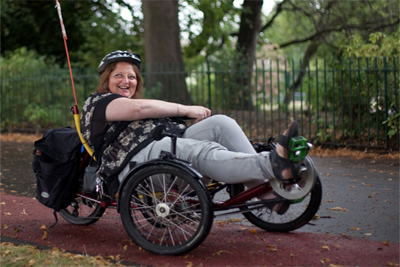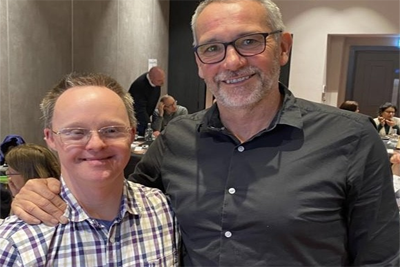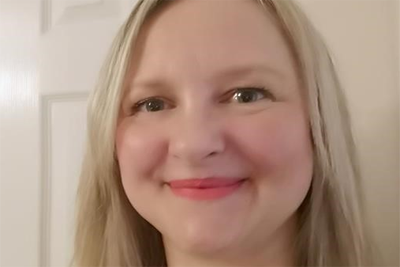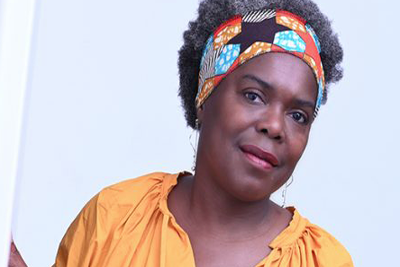02 May 2023
By Caroline Waugh, Co-production Week Planning Group and National Co-production Advisory Group member
I believe that in order for co-production to work you first need to identify the need. For me this included the needs of my children and their schooling and I did this with the help of a newly qualified social worker who was open to new ways of thinking. Little acorns grow into big trees.
As a recently separated disabled mother of two children at primary and nursery school, I had to independently get them to their daily activities on time every day. Not being a driver, this was a problem as the children’s father objected to me taking them to school on my mobility scooter, even getting an injunction to stop me doing this.

Money was tight so I developed a plan with the help of my social worker to cycle to school on a tricycle, supervising my children on their own bikes. To find out where to borrow a tricycle I contacted Disability Sheffield, who gave me Cycling UK’s local development officer’s contact details. His name was Steve and together, we co-produced a plan which involved road safety and me building up stamina and the provision of a tricycle.
New project named
My children are now grown up, but I continue to cycle for health benefits and to access shops, doctors and my own activities. Working with Cycling UK’s development officer we identified a need for a Sheffield based disability cycling service as we had to source my trike and support from around the country. We called our new project Sheffield Cycling4All and it has grown enormously since the first early days.
This is an excellent example of how good co-production can work for people like me as well as the organisations involved. Although I was a founder partner in the beginning and helped run the sessions for 10 years, carrying the Olympic torch on behalf of disabled people in the group, I have since stepped back from the day to day organisation and am now much more involved in the National Co-production Advisory Group.



